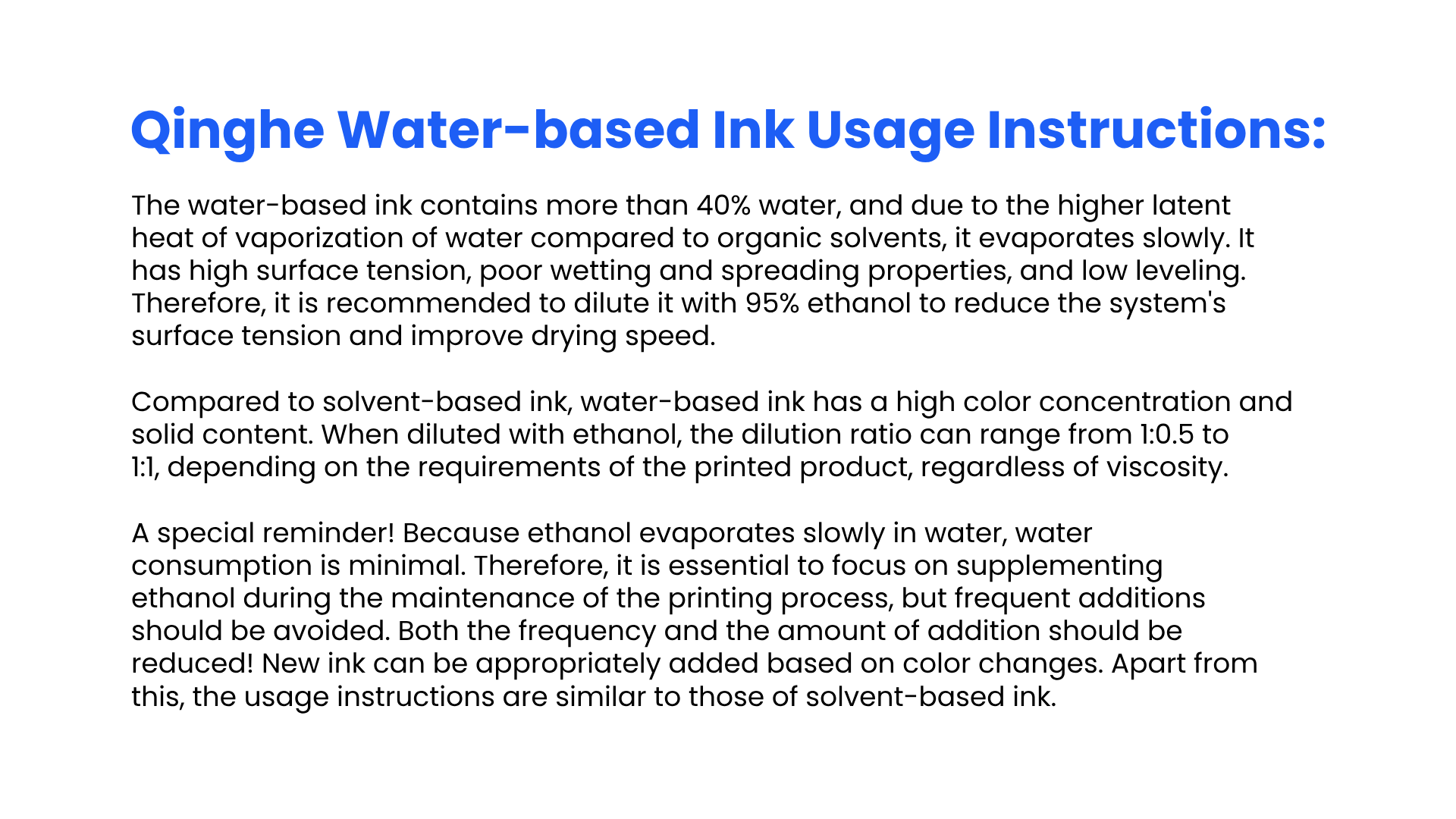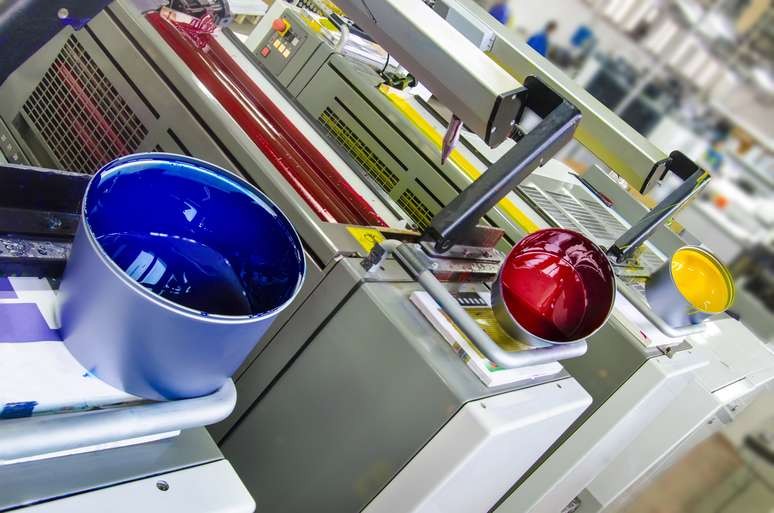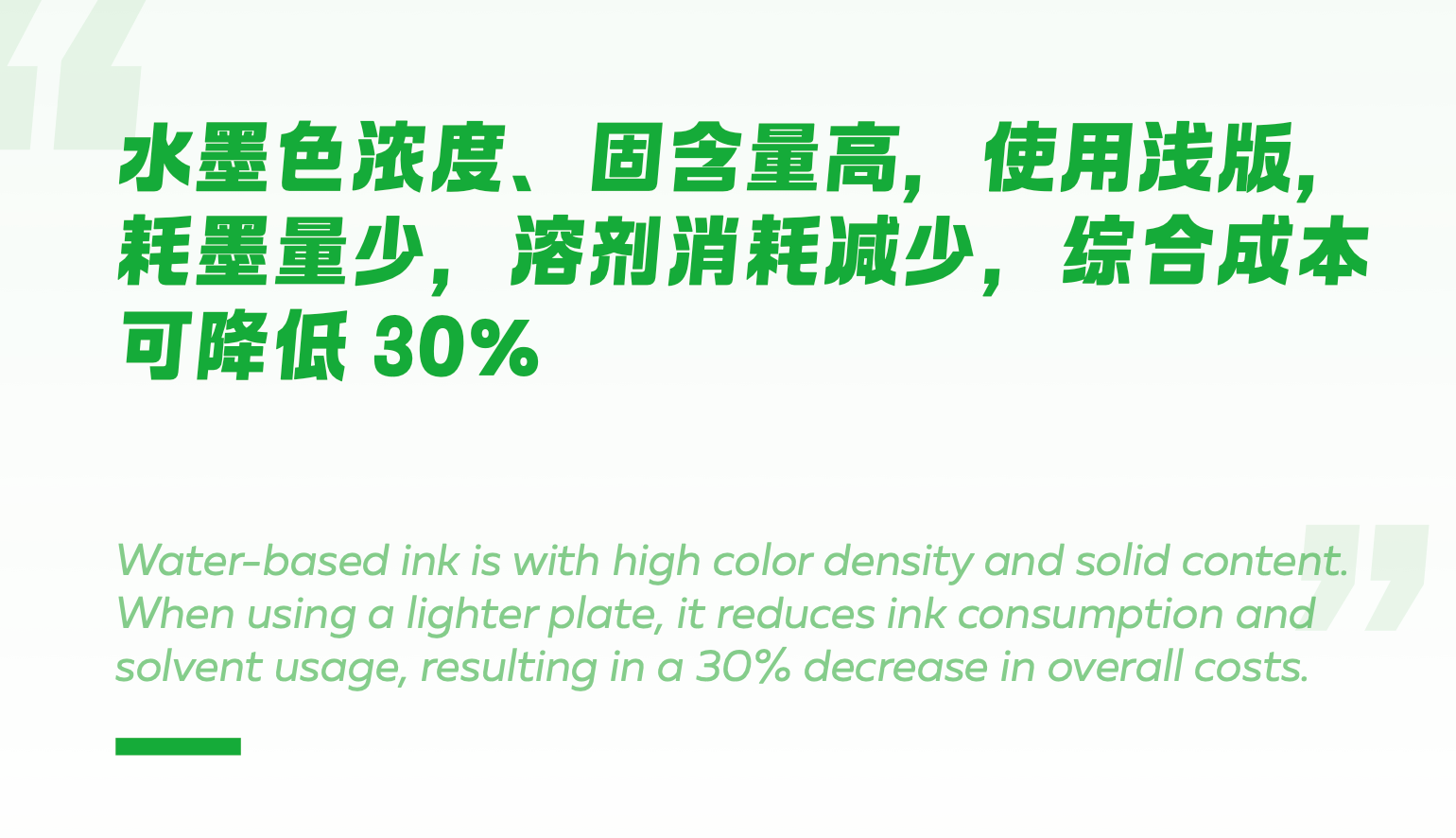Introduction

The choice of ink is crucial for achieving high-quality results when printing on plastic products. Understanding the properties and requirements of ink for printing on plastic is essential in selecting the right option. Whether you're a plastic printer or a business looking to print on plastic products, eco-friendly options are gaining traction due to their numerous benefits.
Understanding Ink for Printing on Plastic
Ink printing on plastic requires specific characteristics to ensure adhesion, durability, and vibrant colors. The ability to withstand various environmental conditions is also a key consideration when choosing ink for plastic printing.
Eco-friendly Options for Plastic Printing
With sustainability at the forefront of many industries, eco-friendly ink options for printing on plastic have become increasingly popular. Water-based inks offer a more environmentally responsible alternative to traditional solvent-based inks, making them an attractive choice for those seeking greener printing solutions.
Benefits of Using Eco-friendly Ink for Plastic Printing
When used in plastic printing, eco-friendly inks offer a multitude of benefits beyond environmental sustainability. These inks often deliver superior print quality, enhance worker safety, and reduce emissions during the production process.
Let's delve deeper into comparing plastisol and water-based inks and explore how they influence plastic printing.
- Print Quality: Water-based inks typically provide brighter, more vibrant colors than plastisol.
- Environmental Impact: Water-based inks are significantly more eco-friendly due to their lower VOC emissions and water-based composition.
- Safety: Water-based inks are generally considered safer for workers as they contain fewer harmful chemicals.
- Cost: Plastisol inks may be more cost-effective in some cases, but this can vary depending on factors such as print volume and ink type.
Understanding these key differences will help you choose the best ink for your plastic printing project.
Qinghe Chemical: The Pioneer in Water-based Gravure Inks

Qinghe Chemical has revolutionized the plastic printing industry with its innovative water-based gravure inks, offering a range of advantages for eco-conscious businesses. These inks are specifically designed for printing on plastic products, providing exceptional adhesion and vibrant colors while minimizing environmental impact.
Advantages of Using Water-based Inks for Plastic Printing
Water-based inks offer a sustainable and high-quality solution for plastic printing. Compared to traditional solvent-based inks, water-based options provide several advantages:
- Superior print quality: Enjoy vibrant colors and excellent adhesion to various plastic substrates.
- Environmental friendliness: Reduce your carbon footprint with non-toxic, odorless inks that emit fewer VOCs.
- Easy cleanup: Simplify the printing process and minimize environmental impact with water-based cleaning solutions.
Businesses can contribute to a greener future by choosing water-based inks while achieving exceptional print results.
Impact of Water-based Inks on Environmental Sustainability
Businesses can significantly reduce their carbon footprint and contribute to environmental sustainability by choosing water-based inks for printing on plastic products. These eco-friendly inks have lower levels of hazardous air pollutants, and help minimize the negative impact on air quality compared to traditional solvent-based options.
Furthermore, water-based inks are more versatile and can be used on a wider range of substrates, including plastics, paper, and cardboard. This flexibility reduces the need for multiple ink types and simplifies printing, leading to a more efficient and cost-effective operation. Additionally, water-based inks are easier to clean up and require less energy for drying, further reducing the overall environmental impact of the printing process.
Comparing Water-based Inks with Solvent-based Inks for Plastic Printing
When comparing water-based inks with solvent-based alternatives for printing on plastic, the former is the clear winner in terms of environmental responsibility. Water-based inks deliver exceptional print quality and ensure a greener approach to plastic printing without compromising performance or durability.
Water-based inks are also known for their versatility, as they can be used on a wide range of plastic substrates, including polyethylene, polypropylene, and PVC. This flexibility makes water-based inks a practical choice for various printing applications, allowing businesses to streamline their inventory of inks and reduce costs associated with stocking multiple types of ink for different plastic materials. Additionally, using water-based inks across different substrates simplifies printing and enhances overall efficiency.
Plastisol Ink vs Water-based Ink: Choosing the Right Option

Differences Between Plastisol and Water-based Inks for Plastic Printing
Choosing plastisol and water-based ink is crucial when printing plastic products. Plastisol ink is a PVC-based ink that sits on the plastic, creating a thick, durable layer. On the other hand, water-based ink penetrates the plastic, resulting in a softer feel and a more eco-friendly option for printing on plastic.
Choosing plastisol and water-based ink is crucial when printing plastic products. Plastisol ink is a PVC-based ink that sits on the plastic, creating a thick, durable layer. On the other hand, water-based ink penetrates the plastic, resulting in a softer feel and a more eco-friendly option.
Factors to Consider When Selecting Ink for Printing on Plastic
Selecting the right ink for printing on plastic involves considering various factors such as durability, environmental impact, and desired finish. Plastisol ink is known for its long-lasting results and vibrant colors, making it ideal for reusable water bottles or containers. However, water-based ink offers a more sustainable choice with its low environmental impact and ability to create a softer print on plastic surfaces.
Sustainable Practices in Plastic Printing Using Water-based Inks
Embracing sustainable practices in plastic printing involves choosing water-based inks over plastisol inks whenever possible. Water-based inks are free from harmful chemicals like PVC and phthalates, making them safer for printers and consumers. By opting for water-based inks, businesses can contribute to reducing their environmental footprint while still achieving high-quality prints on plastic products.
Furthermore, water-based inks are easier to clean up and have a lower impact on air quality than plastisol inks. This means that businesses can improve employees' working conditions while reducing their overall environmental impact. Additionally, using water-based inks can lead to cost savings as they require less energy and resources, making them a practical and eco-friendly choice for plastic printing.
The Printing Process: Best Practices for Eco-friendly Plastic Printing

Tips for Achieving High-quality Prints on Plastic Using Eco-friendly Ink
When printing on plastic products, it's crucial to choose the right ink to ensure high-quality results. Water-based inks are a great eco-friendly option with vibrant colors and excellent adhesion to plastic surfaces. To achieve the best prints, properly clean and prepare the plastic surface before printing, as this will ensure optimal ink adhesion.
After properly preparing the plastic surface, it's important to use the right equipment and machinery for environmentally responsible plastic printing. Look for printers specifically designed for printing on plastic and equipped to handle water-based inks. Additionally, consider using energy-efficient printers and machinery to minimize environmental impact. By investing in the right equipment, you can ensure high-quality prints while also reducing your carbon footprint.
Equipment and Machinery for Environmentally Responsible Plastic Printing
Investing in environmentally responsible equipment and machinery is crucial for sustainable plastic printing. You can significantly reduce your operation's environmental impact by making informed choices. Consider the following:
- Choose plastic-specific printers: These machines are designed to optimize eco-friendly ink usage and minimize waste.
- Invest in energy-efficient drying systems: Reducing energy consumption during drying is essential for a smaller environmental footprint.
- Prioritize printers with recycling capabilities: These machines help conserve resources and promote a circular economy by repurposing excess material.
By incorporating these sustainable practices, you can contribute to a greener plastic printing industry while potentially reducing costs and improving efficiency.
Innovations in Printing Technology for Sustainable Plastic Printing
Innovations in printing technology have led to significant advancements in sustainable plastic printing. For instance, UV LED curing systems have emerged as an eco-friendly alternative to traditional curing methods, reducing energy consumption and emissions during printing. Furthermore, advancements in digital printing technology have enabled precise and efficient ink application on plastic substrates.
Eco-friendly Practices in Plastic Printing Industry

As the demand for eco-friendly printing solutions grows, promoting sustainability through ink and material choices is becoming increasingly important. Printers can significantly reduce their environmental impact by selecting water-based inks over traditional solvent-based ones while still achieving high-quality prints on plastic products.
Promoting Sustainability Through Ink and Material Choices
Printing on plastic using eco-friendly ink options such as water-based inks is crucial to promoting sustainability within the industry. These inks are formulated with non-toxic and biodegradable materials, making them a more environmentally responsible choice for plastic printing. Printers can minimize their carbon footprint and contribute to a greener future by opting for these eco-friendly options.
Collaborating with Suppliers for Environmentally Friendly Printing Solutions
Collaborating with suppliers who offer environmentally friendly printing solutions is essential for promoting sustainable practices in the plastic printing industry. By working closely with these suppliers, printers can access a wide range of eco-friendly materials and technologies that align with their commitment to reducing environmental impact. This partnership allows for the development of innovative and sustainable printing solutions that benefit businesses and the planet.
Educating Consumers on the Importance of Eco-friendly Plastic Printing
Educating consumers about the importance of eco-friendly plastic printing is key to driving demand for sustainable products. Printers can influence consumer behavior towards more sustainable choices by raising awareness about the benefits of using water-based inks and other environmentally friendly practices. Through transparent communication about their commitment to eco-friendliness, printers can build trust with environmentally conscious consumers and drive positive change in the industry.
By implementing these eco-friendly practices, printers can significantly reduce their environmental impact while maintaining high-quality prints on plastic products. Embracing sustainability benefits the planet and positions businesses as leaders in responsible plastic printing.
Create a Sustainable Future Through Responsible Plastic Printing

In a world where sustainability is crucial, switching to eco-friendly ink for printing on plastic is a smart choice. Businesses can create a more sustainable future by choosing water-based ink over plastisol ink for printing on plastic products. Embracing Qinghe Chemical's vision for greener printing solutions means taking responsibility for the environmental impact of plastic printing.
Making the Switch to Eco-friendly Ink for Plastic Printing
Choosing eco-friendly ink for printing on plastic is not just a trend; it's a responsible choice that benefits businesses and the environment. By opting for water-based ink, companies can reduce their carbon footprint and minimize the use of harmful chemicals in the printing process. Making this switch demonstrates a commitment to sustainability and sets a positive example in the industry. Additionally, using eco-friendly ink can enhance printed materials' overall quality, resulting in sharper images and brighter colors that can help businesses stand out in a competitive market.
Responsible plastic printing also involves minimizing waste and reducing the environmental impact of production processes. This can be achieved by implementing recycling programs for plastic waste, using efficient production techniques to minimize material usage, and investing in technologies that reduce energy consumption. By taking these steps, businesses can significantly decrease their carbon footprint and contribute to a more sustainable future for the planet.
Embracing Qinghe Chemical's Vision for Greener Printing Solutions
Qinghe Chemical's dedication to developing water-based gravure inks has paved the way for greener printing solutions in the industry. Their commitment to environmental sustainability and innovation has set new standards for eco-friendly plastic printing. By embracing their vision and utilizing their products, businesses can align themselves with an environmentally conscious approach that benefits their operations and the planet.
Furthermore, Qinghe Chemical's water-based gravure inks offer superior print quality and color vibrancy, proving that eco-friendly solutions do not compromise performance. This means businesses can maintain high printing standards while reducing their environmental impact. By choosing Qinghe Chemical's products, companies can demonstrate their commitment to sustainability without sacrificing the quality of their printed materials.

